Advocacy quilts allow marginalized women and children to tell their story and reach new partners in the Global North
The Advocacy Project helps marginalized communities use embroidery as a tool for therapy, human rights, and advocacy. With support from experts in the north, we turn their embroidered squares into quilts that can be exhibited and even sold. Every artist who contributed to an AP quilt is profiled on this website with their agreement.
Visit our collection of quilts and meet the artist
Telling the story of marginalization through embroidery
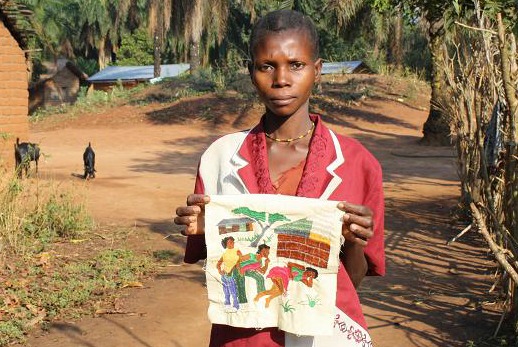
Producing embroidery can be therapeutic, particularly when done in company of other survivors. Aci M was attacked and violated by militia in eastern Congo in 2010. She was one of 120 Congolese women to describe their ordeal for the six Ahadi (“promise”) quilts. AP curates over 50 advocacy quilts on behalf of partners. Each one is a record of abuse and resistance, as told by women and children who were directly affected and rarely have a chance to express themselves.
Assembled by experts in the US
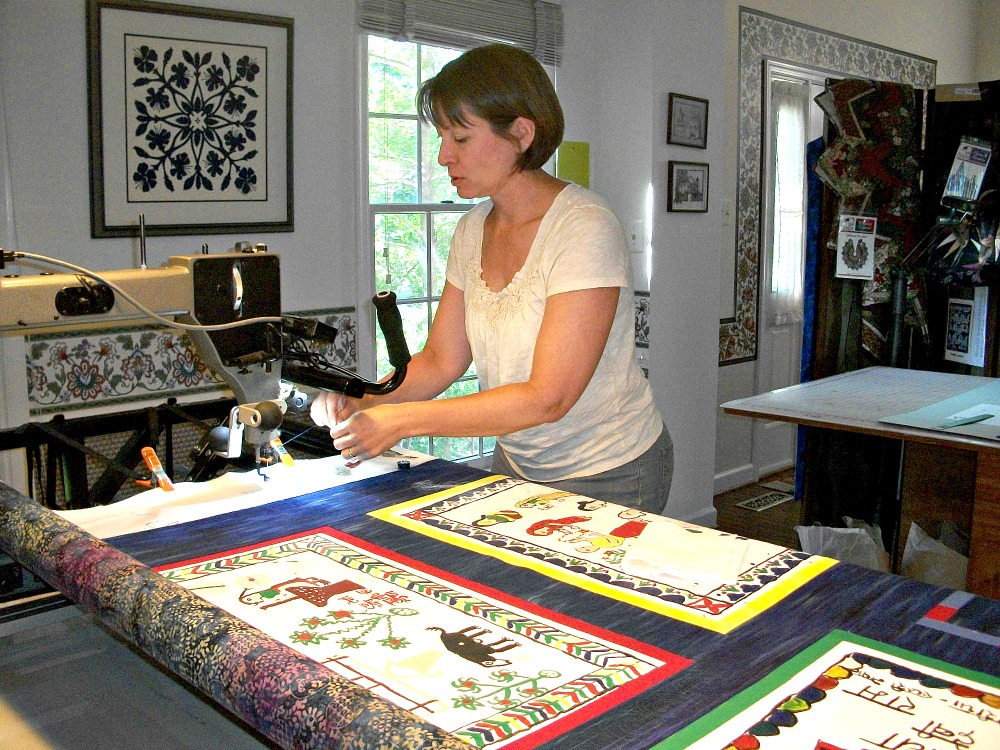
Maria O’Haver is a leading member of the Faithful Circle Quilting Guild in Columbia, MD, and one of many expert quilters in the US who have offered their time, resources, and talent to assemble embroidered squares from AP partners. All quilters who have worked on quilts are profiled on our website through videos and photos. Many say that they have learned much about the challenges that face women in the Global South while working on their embroidery.
Quilt exhibitions help to spread the message
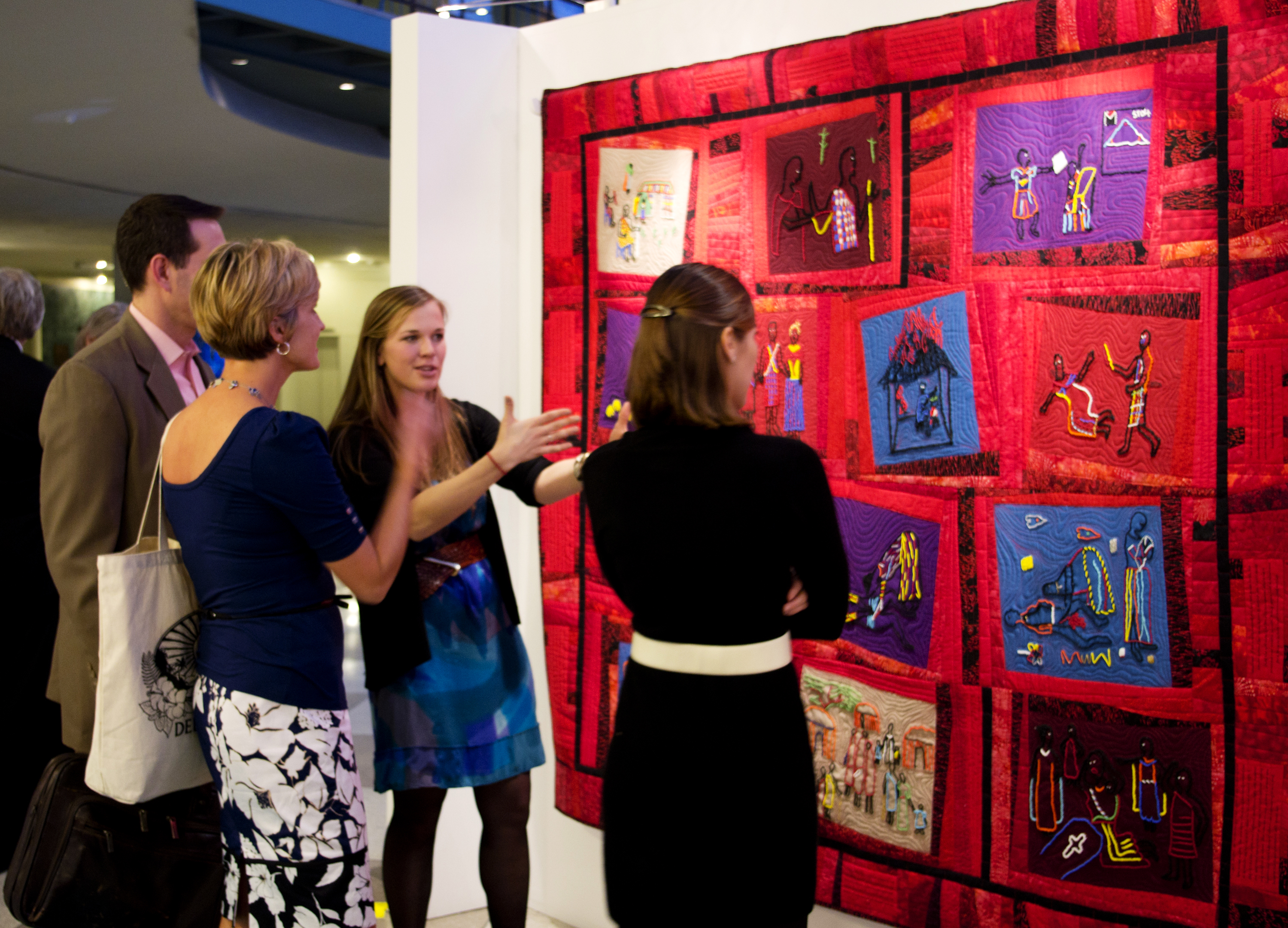
Once assembled, advocacy quilts make a powerful argument for the work of partners and we have shown their quilts at over seventy events in North America and Europe. Peace Fellow Charlotte Bourdillon (center) helped the Rehema widows of Kenya to denounce genital cutting through embroidery while working at the Kakenya Centre of Excellence. She is seen here describing the widows’ quilt during a 2012 exhibition of advocacy quilts at the UN which attracted over 80,000 visitors.
From story-telling to income generation
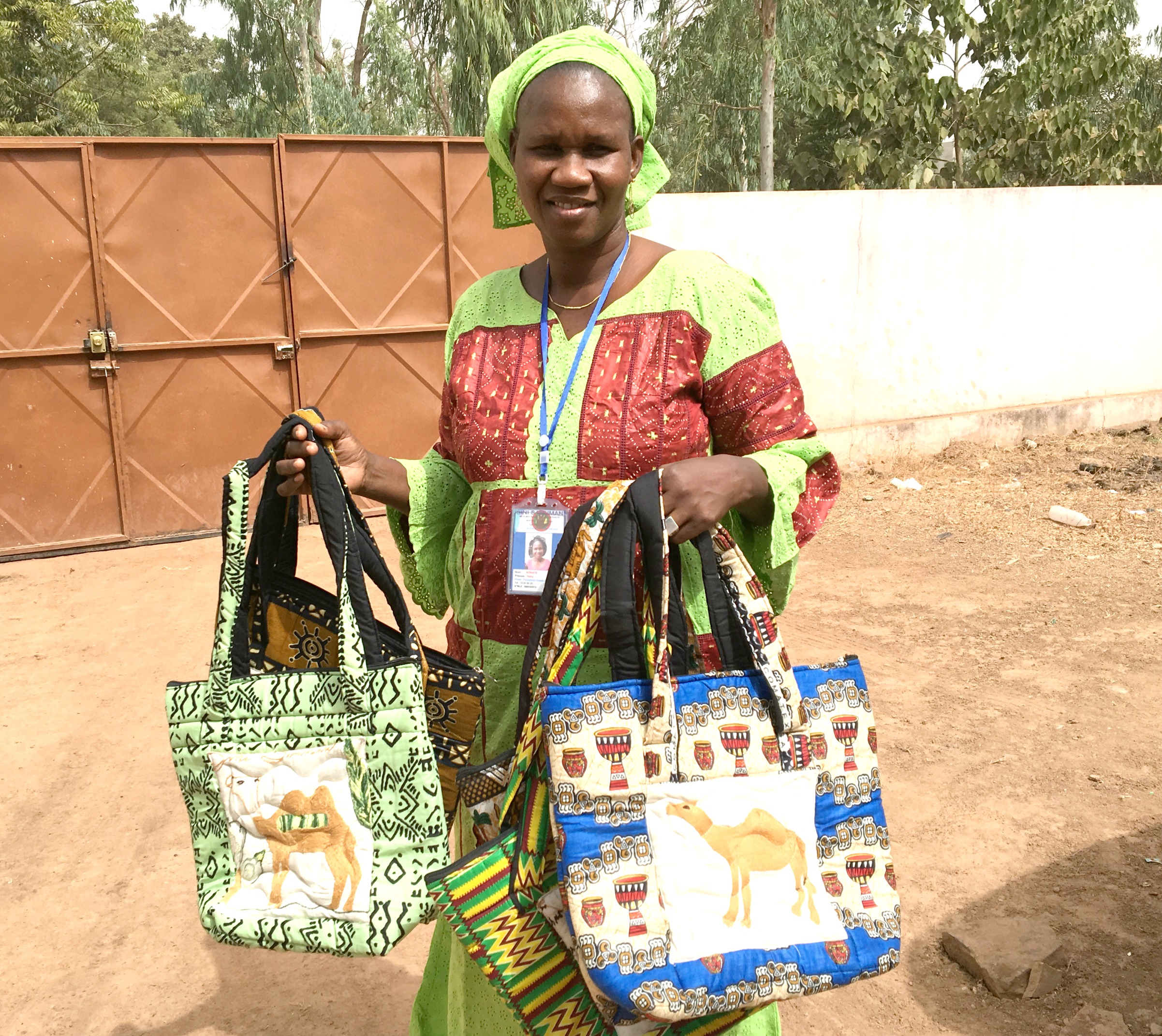
After they master the techniques of embroidery and story-telling, many AP beneficiaries want to use their new skills to earn money and we hope to include this in our future program. Abi Konate, a professional tailor, trains survivors of sexual violence to make clothes in Mali. She is also turning their embroidery into bags. AP will offer Abi’s camel bags at quilt events in the US and develop an online catalog to sell bags and hangings from Mali and Nepal in 2019.
Feedback
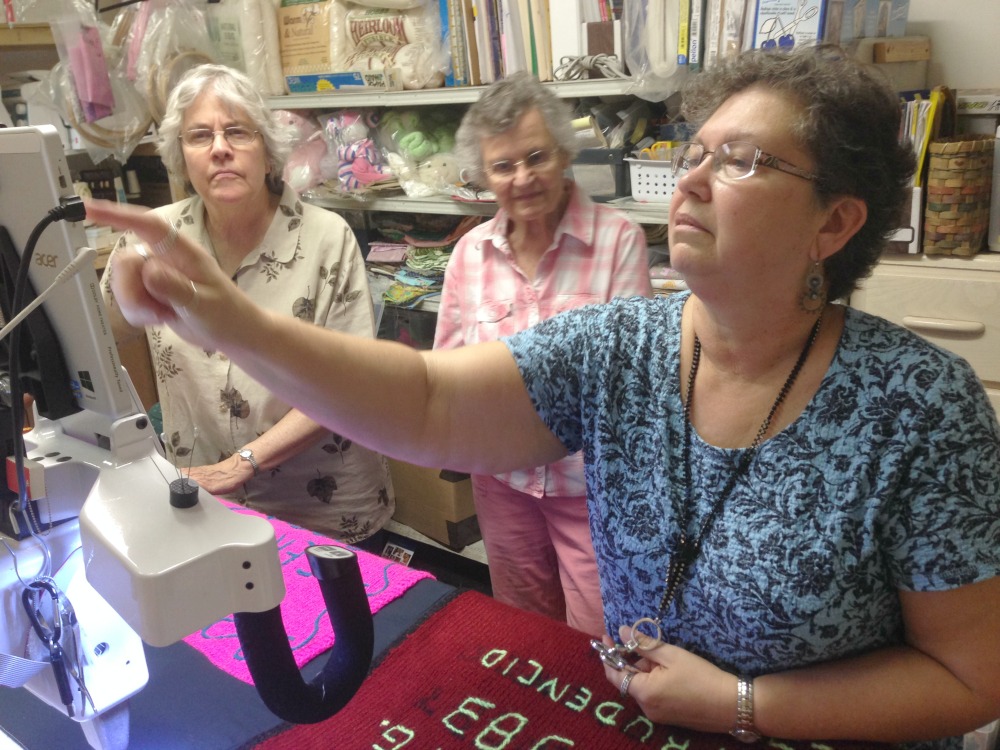
“Thank YOU so much for the opportunity to make a contribution to this very worthy cause. I hope people from all over the world will see these quilts and think about what goes on beyond our own borders; and then work to make these atrocities a thing of the past” – Merry May, right, has assembled quilts from Peru and Mali for AP. She is seen here with fellow quilters Ginny Cooper and Elizabeth Ohlson working on the Nunca Mas quilts from Peru. Watch them in action here!
